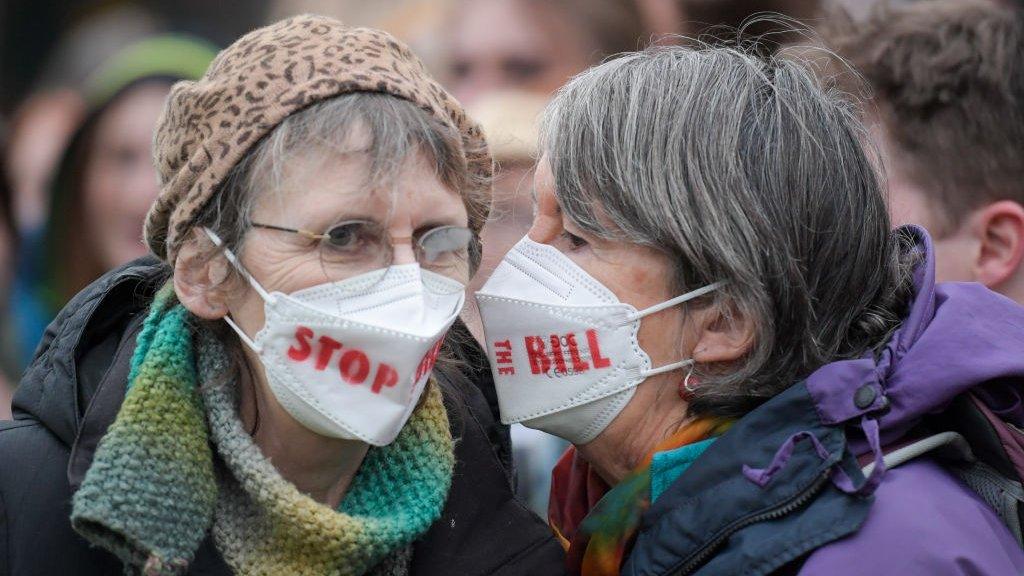What's coming up in Parliament this week?
- Published
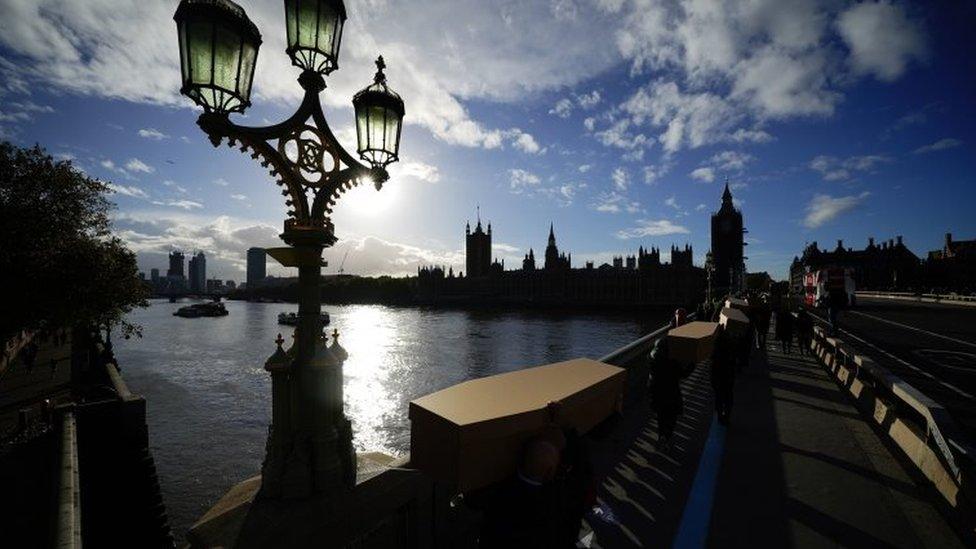
Parliament's brief November half term has interrupted a tense political moment, with the aftershocks of the Owen Paterson case still continuing.
And, if you look at events a little further back, many government backbenchers are still nursing bruises from the social media backlash over the sewage amendment to the Environment Bill.
With the Lords sending back a number of issues from current legislation for MPs to reconsider, the government whips could be asking their troops to cast some uncomfortable votes, starting on Monday with a vote concerning the removal of the "triple lock" on the value of state pensions.
Maybe nothing will happen, but the Opposition will certainly be trying to test Tory unity by forcing their MPs into as many awkward votes on sensitive issues as it can.
And watch out for the direct ramifications of the Paterson kerfuffle; a vote on the Standards Committee's report is due on Monday, although probably without debate, and moves to reshape the system for policing MPs' ethics look likely to follow.
Meanwhile two of the great powers of the land face interrogation by select committees - Yorkshire County Cricket Club and the prime minister.
Here's my rundown of the week ahead.
Monday 15 November
MPs resume (14:30) with an hour of Defence questions, probably followed by government statements or urgent questions.
Then MPs will deal with the Lords amendments to the Social Security (Uprating of Benefits) Bill, external.
The Lords amended the normally routine legislation, which uprates a variety of benefits, because it removed the "triple lock" on the value of the state pension for a year.
This broke a manifesto pledge, because ministers broke the link between pensions and the rise in earnings, after concerns that a post-pandemic rise in average wages would have meant pensions increasing by 8%.
The main debate will be on the second reading of the Skills and Post-16 Education Bill, external, which has already cleared the Lords. The bill aims to reform the technical education system, and introduce a lifelong loan entitlement, as part of a flexible lifetime skills guarantee.
And lurking the end of the business is a little item entitled Committee on Standards (Motion), which would approve the original report of the committee on the Owen Paterson case, which recommended a 30 day suspension from the Commons for the now-departed MP.
But the motion will not be debated if the previous business (and any statements or urgent questions) have taken up all the available time, when the music stops at 22:00. At that point remaining business is taken without debate - unless it is objected to, which it might be, if someone wants to push the MPs standards issue further.
In Westminster Hall, Monday is Petitions Day, and (16:30) MPs will consider two e-petitions 323926 and 575620 on traffic offences for fatal collisions. The first, signed by 104,324 people, calls for tougher sentences for hit-and-run drivers who cause death. The second, also known as Ryan's Law, calls for the legal definition of causing death by dangerous driving to be widened to include failure to stop, call 999, or render aid on scene. It attracted 167,470 signatures.
Then (18:00) they turn to e-petition 582336, entitled Ban Water Companies discharging raw sewage into water courses, which received 111,434 signatures.
Committee action includes Treasury (14:30) questioning the Governor of the Bank of England, Andrew Bailey, and members of its Monetary Policy Committee in the wake of their recent decision not to raise interest rates.
In the Lords (14:30), proceedings open with the introduction of two new bishops, the Lord Bishop of Exeter, the Rt Rev Robert Atwell and the Lord Bishop of Liverpool, the Rt Rev Paul Bayes, after which ministers face questions on the publication date for the long-awaited White Paper on levelling up, and on the government's definition of Islamophobia.
Then peers respond to the Commons in the latest round of parliamentary ping pong on the Telecommunications (Security) Bill.
The main event will be day eight of the marathon committee stage consideration of the Police, Crime, Sentencing and Courts Bill - this was supposed to be the final day, but the debate has gone slowly and committee will now continue on Wednesday.
Tuesday 16 November
The Commons opens (11:30) with an hour of Business, Energy and Industrial Strategy questions.
The day's Ten Minute Rule Bill, from Labour's Emma Hardy, is on flood protection. This is a huge issue in her Hull constituency, where thousands of people live in areas at significant risk. The bill would set national minimum requirements for flood mitigation and protection measures.
The main legislative work is the second reading of the Finance Bill, the measure which puts the October budget into law.
Watch out, too, for the adjournment debate led by the former Lord Chancellor, Robert Buckland, on funding for autism and neurodiversity research. He wants the government to build on the work he began when he was in charge of the prison system, to assess the number of people in jail who have autism and other conditions.
In Westminster Hall (09:30), Conservative MP Bob Blackman, who's chair of the All Party Parliamentary Group on Smoking and Health, leads a debate on the delivery of a new Tobacco Control Plan. His group wants to end smoking by 2030 and make the tobacco manufacturers "pay to end the epidemic".
Labour's Tulip Siddiq has a 90 minute debate on the continuing plight of Nazanin Zaghari Ratcliffe, whose husband is on hunger strike, to pile the pressure on to ministers, and highlight her case. (14:30)
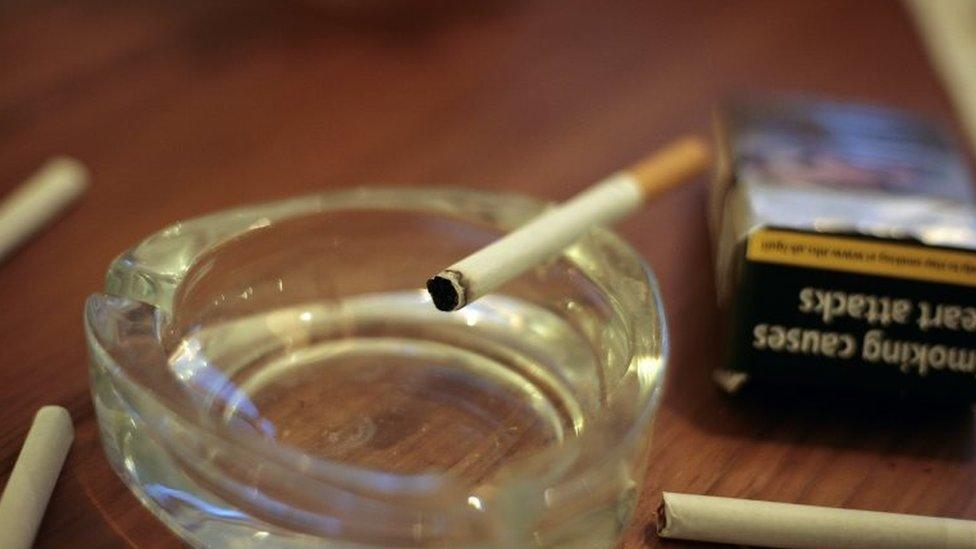
Bob Blackman will push his group's call to halt smoking
Committee action includes Digital, Culture, Media and Sport turning its attention to Yorkshire County Cricket Club's handling of racism allegations from the former player Azeem Rafiq. He's due to give evidence and there is speculation that he will use parliamentary privilege to discuss how senior managers at the club dealt with his case. Given the current turmoil at Headingly, it is not clear which senior figures will appear from the club itself, although the committee will expect to hear from the newly-installed Chair, Lord Patel. And while Yorkshire will be the focus of discussion, it is possible that events in other counties may also feature.
Elsewhere, Justice has a hearing with Lord Burnett, the Lord Chief Justice of England and Wales - which could see some pungent comments on mooted reforms to the Human Rights Act, and on court backlogs.
In the Lords (14:30), questions range across self-isolation rules, and abuse against health and care staff .
Next, peers respond to whatever the Commons has done with their amendment to the Social Security (Up-rating of Benefits) Bill.
Then there's the report stage of the Dormant Assets Bill, external - which extends the existing scheme to release money languishing in unused and forgotten bank accounts, to cover around £880 in other dormant assets.
Wednesday 17 November
The Commons opens (11:30) with half an hour of Wales questions, followed by Prime Minister's Questions.
The day's Ten Minute Rule Bill, proposed by the Conservative Robert Largan, calls for a ban on using disposable barbecues on open moorland, and would give councils the power to ban their sale - Mr Largan has regularly highlighted how they cause moorland wildfires.
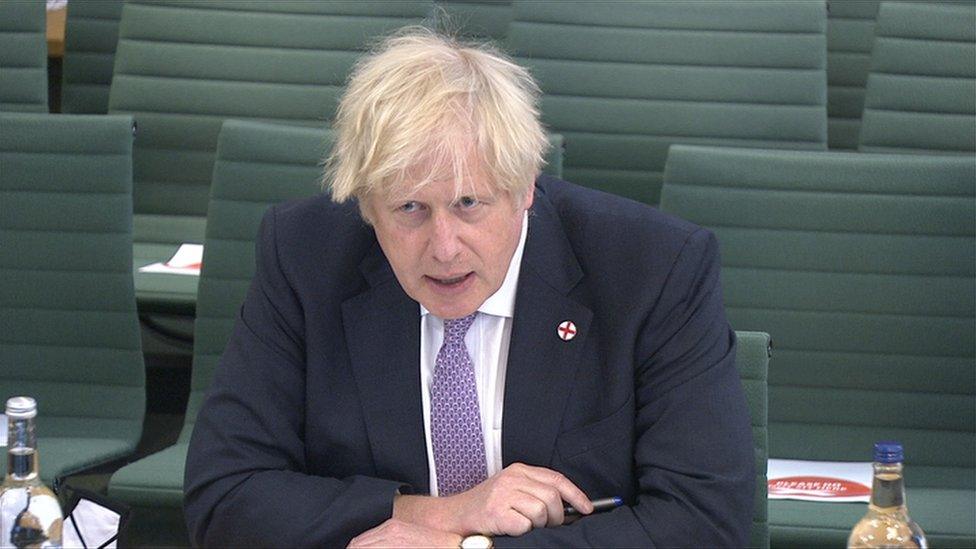
The prime minister will be facing questions from select committee chairs
The big committee event (15:00) is the Liaison Committee holding one of its twice-yearly evidence sessions with the prime minister - will Standards Committee Chair Chris Bryant and maybe Procedure Committee Chair Karen Bradley have a chance to quiz him on his decision to challenge the original verdict of the Standards Committee to suspend former Tory MP Owen Paterson from the Commons for 30 days?
Earlier, Work and Pensions (09:15) takes evidence on the Health and Safety Executive's approach to asbestos management with campaigners and HSE managers.
In the Lords (15:00) there are questions to ministers on sentencing guidelines for pregnant women offenders, the Dimbleby report on a National Food Strategy and an independent commission on the future constitution of Wales.
The main event is an extra day of committee consideration of the Police, Crime, Sentencing and Courts Bill. Progress has been so slow that there may be a further extra day on Monday 22 - suggesting a marathon report stage in December.
Thursday 18 November
The Commons day begins (09:30) with 40 minutes of Digital, Culture, Media and Sport questions, followed by a mini-question time for the Attorney General. There will also be the weekly statement on forthcoming Commons business from the Leader of the House, Jacob Rees Mogg (more Paterson-related argy-bargy?)
Then the Commons will yomp through all stages of the Critical Benchmarks (References and Administrators Liability) Bill, external, a measure to tidy up the implications of the abolition of the LIBOR interest rate. It has already cleared the Lords.
Meanwhile, in Westminster Hall there are two Backbench Business Committee debates - on access to Automatic External Defibrillators (13:30) and on visa and permit-free working for musicians in the EU (15:00).
In the Lords (11:00), there are questions to ministers on the government's pledge to build 40 new hospitals and on ensuring leaseholders don't pay the cost of repairing safety defects in their building, for which they are not responsible.
And that's followed by the monthly half hour question time for the government's Brexit supremo, Lord Frost, the Minister of State at the Cabinet Office.
Then come the usual Thursday backbench debates, opening with Labour's Baroness Young of Old Scone on the outcome of COP26, with the Environment Minister, Zac Goldsmith, answering for the government.
Labour's Baroness Donaghy leads a debate on initial teacher training, the recruitment of new teachers and the role of universities and other bodies in ensuring the supply and education of new teachers.
Friday 19 November
MPs meet (09:30) to discuss private members bills, and this could be one of those days where several are voted through their second reading (their initial debate) - starting with the Marriage and Civil Partnership (Minimum Age) Bill which aims to stop children being forced into marriage by raising the minimum age from 16 to 18.
At the moment, the only way for a child to prevent their marriage is to report that they have not consented which places the burden on children to speak out - and can endanger the child.
The bill was originally proposed by the former Home Secretary, Sajid Javid, and was taken over by Pauline Latham when he was brought back into the government. It has government and cross party support.
Second on the agenda - and with a good chance of being debated - is the Conservative Dr Ben Spencer's Planning (Enforcement) Bill, which seeks to clamp down on repeat breaches of planning controls and create a national register of repeat offenders. He hopes this will help end the cycle of "endless applications and planning breaches on problem sites".
Third is the Conservative Jane Stevenson's Glue Traps (Offences) Bill - this would ban the use of glue traps as a method of pest control, on the argument that they are inhumane and can cause immense suffering to animals. She says her bill has the support of government and animal welfare charities like the RSPCA.
There are plenty more bills on the order paper, but it would be surprising if MPs had a chance to debate, still less vote on, more than the first five.
The Lords are also sitting (10:00) to debate private members' bills, starting with the second reading of the Age Assurance (Minimum Standards) Bill, which would set the rules for age assurance systems for accessing an online or digital service and ensure they protect the privacy of users. The bill is proposed by the Crossbencher Baroness Kidron, who has long campaigned for greater protection for children online.
That is followed by the second reading of Baroness Hayman's Onshore Wind Bill, which deals with planning applications for onshore wind installations, and then by debate on the Coroners (Determination of Suicide) Bill which will require the coroner or jury at an inquest to record an opinion as to whether gambling addiction or other factors are involved in a suicide - it is proposed by the Bishop of St Albans, Dr Alan Smith, who has regularly raised concerns about fixed odds gambling machines fuelling problem gambling.
- Published5 November 2021
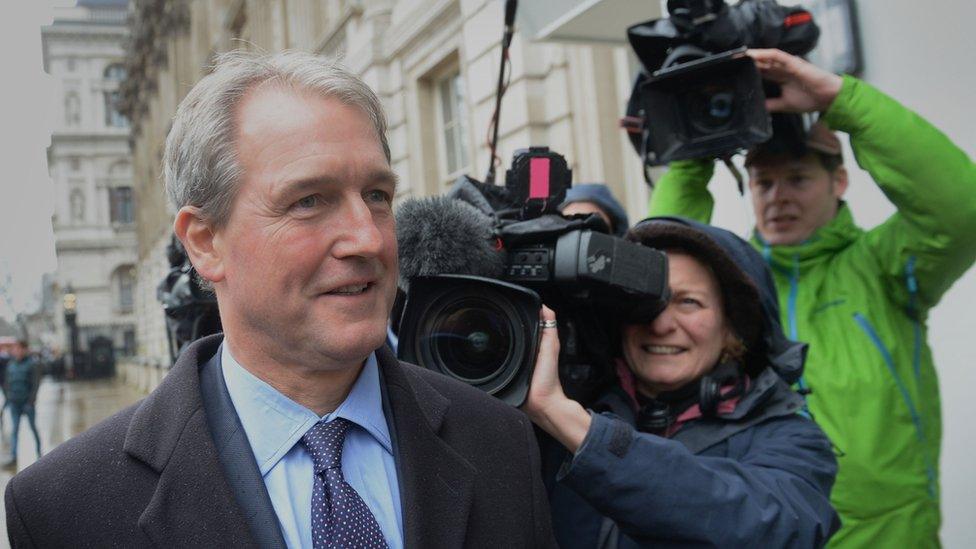
- Published4 November 2021
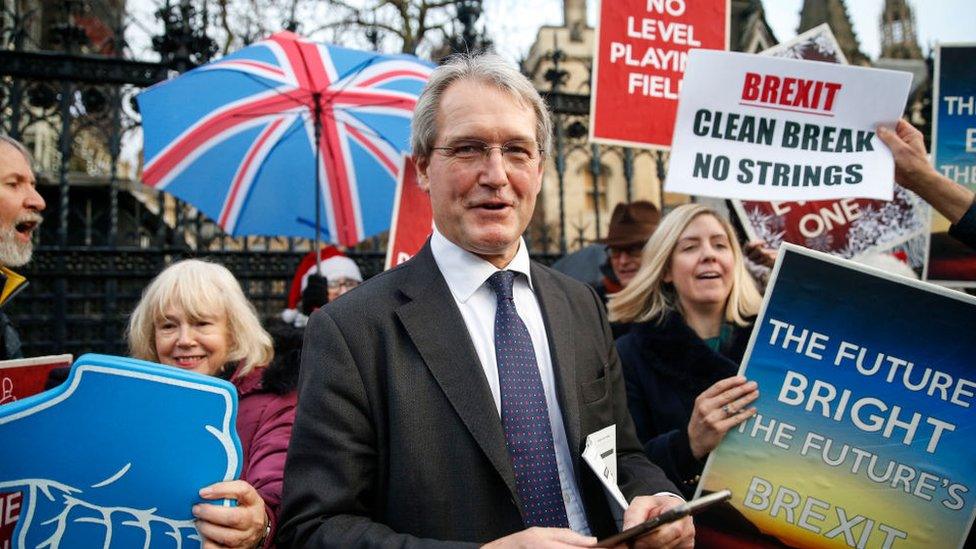
- Published28 April 2022
